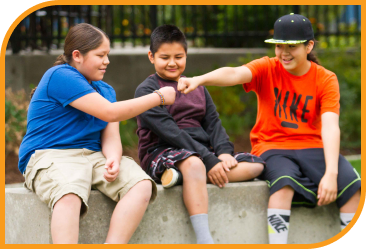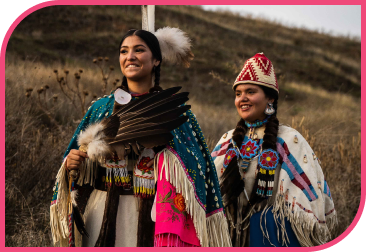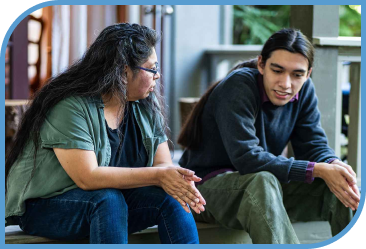Call 988 and press 4 for the Native and Strong Lifeline, available 24/7.

Native youth face unique challenges beyond those of their peers. In addition to educational disruptions caused by the pandemic and the mental health burden linked to technology and social media, they also deal with the effects of generational trauma. But Native youth are inherently resilient, a powerful trait that has been passed down through generations. Awareness of both this trauma and the accompanying resilience is growing, and the most effective healing often comes from within Native communities themselves.
While Native youth face a higher risk of suicide compared to their peers, there is hope in the strong connections to culture, tradition, language and togetherness within Native communities. These connections have been shown to significantly lower suicide risk, highlighting the great power of community and culture in supporting resilience and well-being.

Native families are rooted in strong connections and support, which are essential for nurturing Native youth. Fostering these relational networks can help young people thrive. Creating opportunities for them to build meaningful relationships with family and their Native peers is crucial to their well-being. Together, these connections not only enhance resilience but also play a vital role in helping to prevent suicide by reinforcing a sense of belonging and hope.

Creating a connection to place and culture builds identity—and youth with a strong sense of self are more likely to seek help when needed. Tribal elders play a crucial role in this process, serving as guides who share valuable knowledge, history and traditional wellness practices. Creating opportunities for youth to learn from elders not only honors culture and tradition, but also exposes them to the pathways to healing that can make a profound impact on the future of Native communities. This intergenerational connection fosters resilience and encourages youth to prioritize their mental health.

Native youth are the future of their communities, and self-governance is important for the future health and well-being of these communities. It’s important for adults to communicate to youth that it’s OK to reach out for mental health support. It is OK to ask for help. It is also important to encourage their involvement in community activities, such as tribal youth councils and youth-led mental health campaigns. This not only empowers them but also strengthens their connection to cultural identity and purpose. Creating a supportive environment helps Native youth recognize their value and importance in their community.
Native and Strong Lifeline
If you’re thinking about suicide or struggling emotionally or mentally, talk with a friend or relative, or call the Native and Strong Lifeline:
Finding support for houselessness, unemployment, and other hardships can improve your mental health. The Native Resource Hub can help you find housing, food, utility assistance or other resources, including cultural resources.